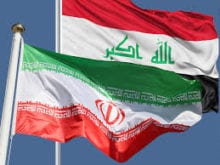rferl.org – The Iranian government has issued strict guidelines for media conduct in the run-up to Iran’s presidential election, which was called after the recent death of former President Ebrahim Raisi in a helicopter crash.
According to the newly published regulations, any content deemed to be aimed at discouraging voter turnout or promoting election boycotts, as well as organizing any form of unlicensed protest gatherings, strikes, or sit-ins, is now classified as “criminal.”
The rules mimic previous mandates and carry severe punishments, including the potential for as many as 74 lashes, for those found in violation.
The initiative is part of the intense effort by the Iranian government to control the political narrative and suppress dissent amid historically low election enthusiasm due to the widespread disqualifications of candidates and aggressive suppression by authorities of any opposition.
Under Clause 74 of Iran’s presidential election law, all media outlets –including print, broadcast, and online platforms — are prohibited from publishing anything deemed to be negative content about election candidates or suggesting that any group or individual withdraw from the race.
Violations can lead to severe repercussions, including the temporary shutdown of the offender’s media operations and physical punishment for its managers and possibly the authors of such articles.
The guidelines also extend to social media, where the publication of any content deemed as insulting or slanderous against the regime, or that which stirs public discord or spreads false information, is forbidden.
The law specifies that no private complainant is required for the prosecution of these offenses, suggesting a proactive approach by the state in monitoring and regulating election-related discourse.
These developments occur amid a backdrop of increasing control over media and public opinion by the Iranian authorities, who have long used broad and vaguely defined charges to crack down on political activists and civil society.
The recent guidelines also underscore the government’s intent to tighten its grip on all forms of expression and ensure a controlled electoral environment, sparking concerns among international observers about the state of freedom of speech and fair electoral practices in Iran.
In recent elections, the authorities severely limited the playing field by disqualifying most moderate and reformist candidates, which may have contributed to the low voter participation seen in recent balloting.
Rights groups have complained of an intensified clampdown on public expressions of discontent since Raisi and Foreign Minister Hossein Amir-Abdollahian and several others died in the helicopter crash in a mountainous region of northwestern Iran in mid-May while returning from an official visit to Azerbaijan.
 Shabtabnews In this dark night, I have lost my way – Arise from a corner, oh you the star of guidance.
Shabtabnews In this dark night, I have lost my way – Arise from a corner, oh you the star of guidance.



